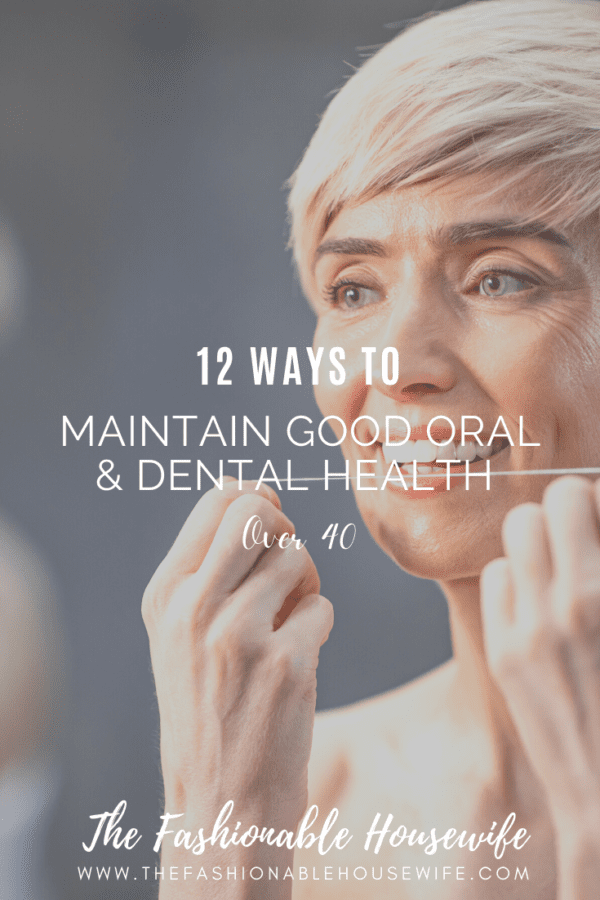
Taking care of your dental health is vital, no matter how old you are. However, when you turn 40, you need to provide your teeth with some extra care as they could get weaker and more brittle.
As you grow older, you might notice that your teeth might not look how it’s supposed to be while you’re in your 20s. While you may feel a bit sad about that, remember that it’s a part of growing up whether you like it or not. Alternatively, you can choose to have veneers so you can keep your teeth looking fresh, white, and healthy.
Moreover, listed below are the ways on how you can maintain good oral and dental health over 40.
1. Brush Your Teeth Regularly
With a weaker set of teeth, you should brush your teeth twice a day for at least two minutes with fluoride toothpaste. Ideally, you should brush just right after you had your healthy breakfast, and once more before you sleep at night. However, if you have more time in your hands, you might want to consider brushing again after your lunch so you can ensure that you’ve wiped away every food residue that could turn into bacteria.
You must brush your teeth regularly as poor dental hygiene can lead to plaques, which may contribute to developing tooth decay and gum disease.
As you grow older, the last thing that you’d want is to develop tooth decay, which could also lead to cavities that put a hole in your tooth. In time, it’ll be more challenging to treat cavities, which can lead to infection, intense pain, or tooth loss.
2. Floss After You Brush
After brushing your teeth, it should be a habit for you to floss your teeth regularly. But, don’t worry as it’s not necessary for you to floss your teeth twice a day as a single floss is enough to get you through the day. Ideally, you should floss your teeth right before bedtime to ensure that you remove every food particle that may still be in between your teeth.
Flossing is vital because it’s the only way to remove plaque formation between your teeth and right below the gum line. No matter how hard you try to brush, you won’t be able to reach those places. Plus, it’ll be dangerous and can cause your gums to bleed.
As you properly remove plaque all around your teeth, you can lessen your risk of developing tooth decay and gum disease. You’d be surprised with how much plaque your teeth can accumulate during the day, even if you brush and floss regularly.
3. Change Your Toothbrush Regularly
No matter how sturdy your toothbrush is, dentists recommend that you change your brush at least every three months. This way, you can guarantee that you’re practicing good dental habits as the tools that you use are in great condition.
Your toothbrush shouldn’t have frayed bristles and tiny mold formations. If you notice any of those signs in your toothbrush, you should get rid of it immediately and use a new one instead.
While you can try to clean your brush, you should avoid doing so as there could still be parts that you’ll miss out on, and there’ll be a greater chance for mold to grow back in or bristles to weaken and fall out.
4. Take Good Care Of Your Toothbrush
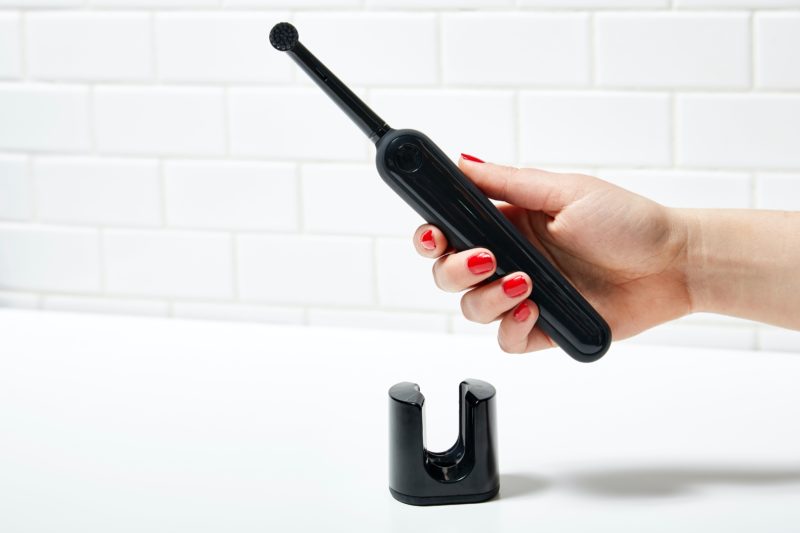
As you change your toothbrush regularly, you should also know how to take good care of it. Ideally, you should never put your toothbrush in an enclosed environment, such as your medicine cabinet or toothbrush case, as you can trap the moisture in and encourage mold development.
To store your toothbrush properly, you should tap it a few times to ensure that there’ll be no water staying in between the bristles and allow it to air dry in a cup. It would also be beneficial if your bathroom has proper ventilation so you can prevent moisture trapping.
5. Brush Your Teeth Properly
Even if you brush your teeth twice a day for two minutes, but if you don’t practice proper motion inside your mouth, you may not be able to clean your teeth, gums, and tongue effectively.
As you brush your teeth, ensure that you use circular motions, as well as back and forth strokes. While you may want to ensure that you clean every corner thoroughly, you shouldn’t be too hard on your teeth, and, alternatively, you shouldn’t be too gentle. You should provide enough pressure that’ll help keep your teeth clean all the time.
If you’re not satisfied with how your brush responds to your teeth, you might want to consider switching to medium or hard bristles, depending on your gum’s capability to bleed. Ideally, you should choose the right amount of pressure and bristles that’ll allow you to brush your teeth effectively without bleeding your gums out.
6. Don’t Forget To Clean Your Tongue
Apart from cleaning your teeth efficiently, you shouldn’t forget to clean your tongue as well. With proper tongue cleaning, you can guarantee that you’re taking care of your overall oral health.
With every food and drink you put into your mouth, it goes right through your teeth and tongue. Moreover, without proper tongue cleaning, you can put yourself at the risk of producing mouth bacteria, leading to plaque buildup, bad breath, coated tongue, and other health conditions.
Ideally, you should clean your tongue every time you brush your teeth. You could use a separate tongue scraper or use the tongue cleaner on the back of your toothbrush, if it has one.
Like how you brush your teeth, you shouldn’t be too harsh as it can also cause scrapes to your tongue. More importantly, you shouldn’t scrape your tongue right on the deepest part and just brush up to where you can reach it. This way, you won’t gag or might push your brush onto your throat, which could be very dangerous.
7. Consider Using A Mouthwash
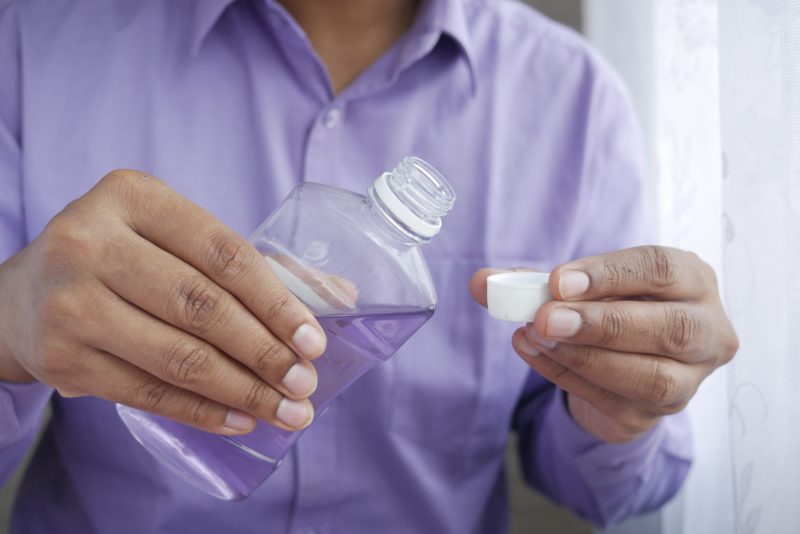
When you brush your teeth twice a day and floss your teeth regularly, it’s not entirely necessary for you to use a mouthwash to complete your oral regime. However, most dentists recommend that you add it to your routine during the morning and evening, ideally, after brushing your teeth.
As you get older, your teeth might be more prone to developing bacteria and gum disease. You might need the most protection that you can, and using mouthwash would be very helpful.
For best results, you should look for a mouthwash that contains fluoride so that it can protect your overall dental health. Ideally, you should go for a mouthwash with low alcohol content to avoid the stinging and burning sensation, which might be too painful for your growing age. Additionally, you can look for a mouthwash that’s antibacterial, anti-plaque, antimicrobial, or anti-gingivitis to ensure maximum protection.
8. Quit Smoking
Smoking can help develop plenty of health complications for your overall body, including your dental health. If you want to ensure that your teeth stay strong and healthy all the time, you should consider quitting using a cigarette or tobacco.
As you continue to smoke, you can put yourself at risk of developing tooth decay and gum disease. Moreover, you’ll be having an increased chance of losing your teeth, along with needing a root canal treatment. While both of those are unlikeable, you should quit your smoking habits if you don’t want that to happen.
There are plenty of ways you can quit smoking. You can try to go cold turkey immediately, or you can try to reduce the number of sticks you use during the day and eventually eliminate nicotine away from your system. As you quit smoking, anticipate that it might be difficult for you, especially that you’ll be going through nicotine withdrawal. With that, you may need to joining support groups or visit a counselor who can help you put yourself on the right track.
9. Eat Nutritious Foods
Eating nutritious food is essential no matter how old you are. With the right food, you can fuel your body and allow it to function healthily, making you live longer. While it does have plenty of benefits for your body, eating the right food also contributes to good oral health.
To keep your teeth strong and healthy, you should consume high-calcium foods, such as cheese, milk, and other dairy products. More importantly, you should also eat crisp fruits and vegetables, including apples, celery, and carrots, to keep your teeth strong and intact.
As you eat healthy, you’re helping your teeth scrape off any plaque and tartar from your teeth. Additionally, it also helps to scrape harmful bacteria from your teeth up to your gums. Don’t worry, as those things are safe for consumption and not just healthy for them to stay in your mouth.
10. Avoid Sugary And Acidic Foods
As you grow older, you need to be more cautious about what you eat. Apart from damaging your oral health, non-nutritious foods can affect your overall health as well.
While it might be enjoyable to consume plenty of sugary and acidic foods, especially if you have a sweet tooth, you should consider dropping them and switching to nutritious foods instead. As you continue to eat those, you might risk developing diabetes, along with tooth decay and cavities. Even if you brush your teeth after each time you consumer a bar of chocolate, you just can never be safe.
11. Clean Your Dentures
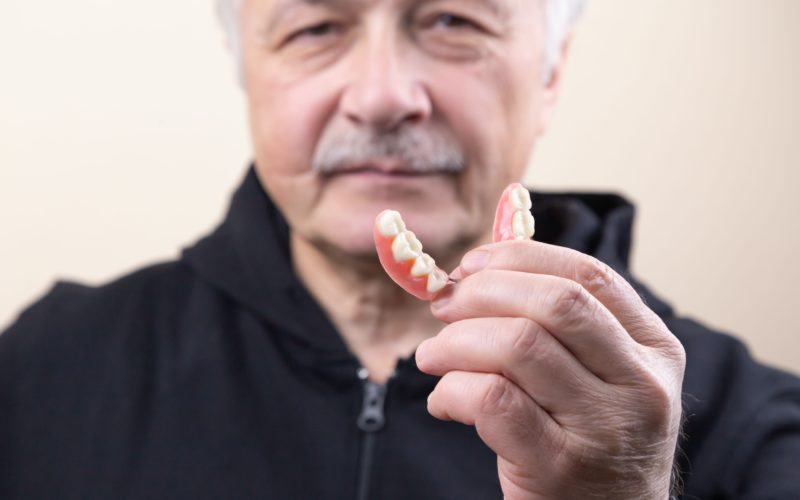
If you’re wearing dentures, you shouldn’t forget to provide proper care for them as well. Even if they aren’t your natural teeth, they could get broken and decay as well, so it’s important that you treat them like your own. After all, it’s what helps you to keep a sparkly smile.
After eating, you should always remove and rinse off your dentures to ensure that you flush out any remaining food particles in between the teeth. You can conveniently do that while using running water and just use a handy towel to dry it.
During the day, you should continue to brush your gums at least twice a day. Ideally, you should use soft bristles as you don’t want to create force into your gums, which may bleed or lead to canker sores. After brushing, you should also brush your tongue, cheeks, and roof palette for an overall clean.
Before you sleep at night, you must brush your dentures at least once a day by using a soft bristle toothbrush with a non-abrasive denture cleanser to remove food particles, plaques, or other residues that you’ve accumulated during the day. You should never put the denture cleanser inside your mouth, and you should always clean it by removing the denture itself from your mouth.
After brushing your dentures, you should soak them overnight using a mild denture solution. This will allow you to sleep comfortably at night, without worrying about losing or choking your dentures.
12. Visit Your Dentist Regularly
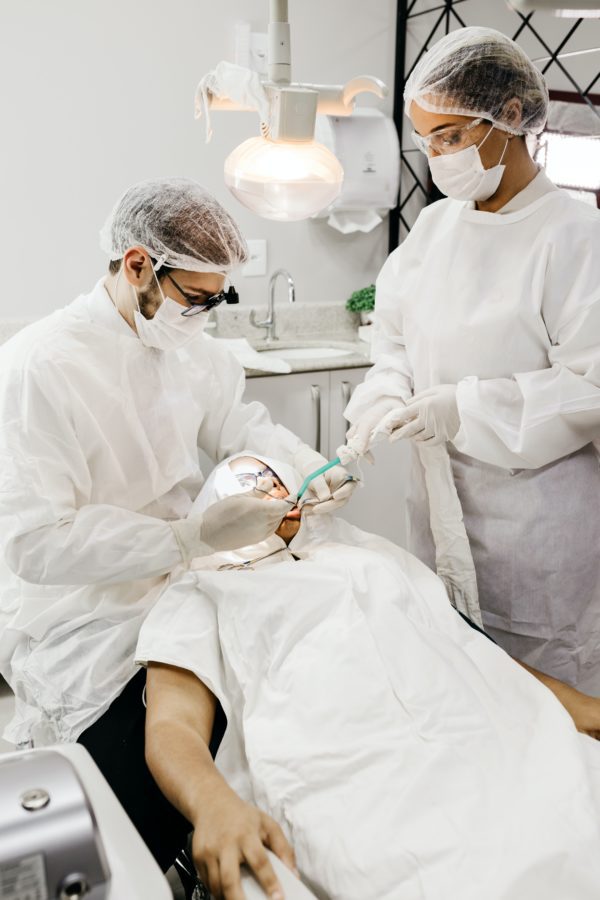
After all of the care you provide for your teeth, having a professional look over your oral health is highly important. With that, you shouldn’t forget to visit your dentist regularly. Even if you’re confident that your teeth and gums are in perfect condition as you brush and floss daily, with your growing age, there might be health complications that you need to address as you just weren’t able to see them physically.
Ideally, you should visit your dentist every six months for a general check-up. Your dentist will check your mouth for possibilities of tooth decay, cavities, gum disease, and other issues that may arise. However, if you’re feeling any pain and discomfort, you should visit the dentist right away as it might be something serious and need proper treatment immediately.
As you age, some of your health concerns might first show their signs on your mouth. This way, your dentist might provide a diagnosis of what could’ve been happening to your overall health. Your dentist might recommend you to see a doctor for proper diagnosis.

Conclusion
As you grow older, you should be extra careful with how you take care of your oral health. The more you age, the more your teeth could grow weaker and more brittle, putting you on the line of losing your teeth. While having dentures isn’t a bad thing, it would still be ideal to have your natural teeth so you can allow yourself to smile confidently.
There are plenty of ways to take care of your teeth, and it’s crucial that you cut unhealthy habits out of your lifestyle and replace them with better ones. Apart from allowing you to achieve pearly white teeth, it’ll also help to improve your overall health.



